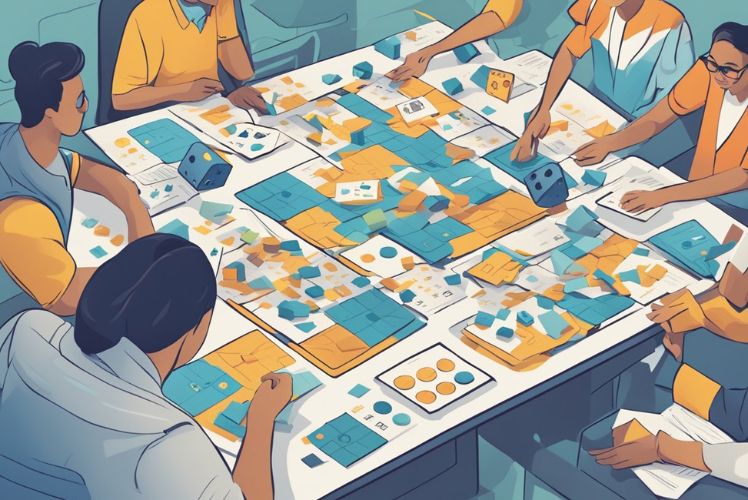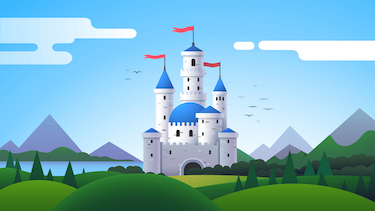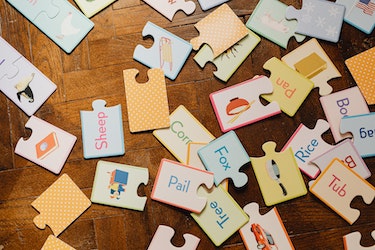Memory Championships are fascinating events that showcase extraordinary skills in memorisation. These competitions push the limits of what we can achieve with our minds and provide a platform for memory athletes from around the world to demonstrate their abilities. Typically held annually, these championships have a rich history and feature various challenging disciplines that test contestants on their speed and accuracy in memorising information.
As we explore Memory Championships, we will see not only how competitors train and prepare but also the techniques they use to excel. These athletes often become champions, achieving remarkable feats that inspire us all. From the mental strategies they employ to the competitive spirit that drives them, there is much to learn from their experiences and achievements.
Engaging with the world of Memory Sports opens our eyes to the potential of our own memories. We will delve into the major competitions and the unique disciplines that define these contests, all while recognising the dedication required to compete at such high levels.
Key Takeaways
- Memory Championships highlight exceptional feats of memorisation.
- Competing involves various disciplines that test memory skills.
- Training techniques are essential for achieving success in memory sports.
History of Memory Championships

The evolution of Memory Championships reflects a blend of innovation and global participation in mental sports. Pioneered by influential figures, the competitions have inspired countless enthusiasts worldwide.
Origins and Founders
The concept of Memory Championships originated in the early 1990s, primarily through the efforts of Tony Buzan and Raymond Keene OBE. Their aim was to create a structured environment where individuals could showcase their memory skills.
The first championship took place in 1991 in London, UK. It attracted competitors from various backgrounds, setting the stage for future events. Tony Buzan, known for his work on mind mapping, played a crucial role in shaping the format and rules of these competitions.
Over the years, we have seen the championships expand beyond the UK, allowing diverse participation and showcasing different memory techniques.
Development and Global Reach
Since its inception, the World Memory Championships have drawn interest from many countries. Events have been held in locations like Germany, Mongolia, China, Vietnam, and the USA.
Countries such as India, Malaysia, Pakistan, and Sweden have also hosted events, fostering a global community of memory athletes. Each event features various disciplines, including speed cards, binary numbers, and spoken words.
This global outreach has led to the formation of national championships and associations dedicated to memory sports. As a result, the landscape of memory training and competition has expanded, allowing us to celebrate remarkable talent across continents.
Major Memory Competitions

Memory competitions are exciting events where participants showcase their skills in remembering large amounts of information quickly. We can categorise major competitions into three main areas: the World Memory Championship, national and regional contests, and Memory League events.
World Memory Championship (WMC)
The World Memory Championship is the most prestigious event in memory sports. Established in 1991, it has gathered competitors from around the globe to compete in various memory disciplines. Participants memorise numbers, words, playing cards, and more within limited time frames.
The WMC is organised under the guidance of the World Memory Sports Council. Each year, the event sees participants push their limits and break records. The competition not only highlights individual talent but also fosters a community dedicated to the art of memory.
National and Regional Contests
National and regional contests play a vital role in growing memory competitions. These events provide local competitors with the chance to gain experience and improve their skills. Countries like the UK, USA, and Germany host their own championships, often leading to international participation.
Competitors at these contests can qualify for the World Memory Championships. These competitions often feature similar disciplines to the WMC, such as speed cards and memorising random words. They also help in identifying emerging talent from various regions.
Memory League Events
Memory League is a platform that hosts regular competitions and events online. It offers a unique format where players can compete against each other in real-time, using various memory disciplines. The League emphasises skill development through practice and competition.
Participants can join different leagues and track their progress through rankings. Memory League events foster a friendly environment while pushing competitors to enhance their memory techniques. These events contribute significantly to the memory sports community, making it accessible for everyone interested in improving their memory.
Disciplines in Memory Championships

In the Memory Championships, competitors face various challenges that test their memory skills across different formats. Each discipline requires unique techniques and strategies to excel. Below, we explore three key disciplines: Abstract Images, Names and Faces, and Random Words and Spoken Numbers.
Abstract Images
In this discipline, we are tasked with memorising a series of abstract images. These images are often colourful and lack clear meanings, making them challenging to recall. Competitors typically have a short period to look at these images before they are obscured.
To remember these images, we often employ mnemonic devices, such as associating each image with a personal story or visualising them in a specific sequence. The goal is to retrieve as many images as possible in the correct order during the recall phase.
Competitors may practice this discipline by using online resources that provide random abstract images. This helps us sharpen our skills and identify effective techniques for memorisation.
Names and Faces
Another important discipline is Names and Faces, where we must remember the names and faces of various individuals presented in a short time frame. This can be particularly tricky, as it often requires us to create mental links between the name and the person’s appearance.
To succeed, we commonly utilise storytelling or vivid imagery. For example, we might picture a face while repeating the name several times. This method strengthens our ability to recall names accurately.
Practising with friends or colleagues can enrich our memory techniques. By presenting names and faces to one another, we refine our skills in a competitive yet fun environment.
Random Words and Spoken Numbers
In this discipline, we face the challenge of memorising a list of random words or spoken numbers. We typically have a limited time to listen to or look at these items before they are taken away.
To efficiently remember these, we often chunk the information. This means grouping words or numbers into smaller, manageable sections. For instance, remembering a sequence of numbers as a phone number format helps make it easier to recall.
Competitors may practise with lists generated from memory training websites, continually expanding their vocabulary and improving their speed and accuracy in recall.
Training and Techniques

To excel in Memory Championships, effective training methods and techniques are essential. We focus on preparation for competition, the specific memory techniques we employ, and the tools and resources that support our training.
Preparation for Competition
Before we compete, we establish a structured training plan. This often starts about six weeks before the event. Daily training sessions lasting 30 minutes to an hour help to enhance our skills.
We first identify the specific events we will participate in. These could include memorising decks of cards, long numbers, or even words.
Using a combination of practice runs and timed exercises, we build our speed and accuracy. Regularly participating in forums or training groups can also provide valuable feedback and motivation.
Memory Techniques and Systems
Our training heavily relies on various memory techniques. We often use methods like the Memory Palace and Mnemonic Devices.
-
Memory Palace: We visualise a familiar location and assign information to specific parts of that space. This method helps us retrieve details with ease.
-
Association Techniques: Linking new information to something we already know solidifies our memory.
-
Chunking: We break down large amounts of information into smaller, manageable chunks. This approach is particularly useful for memorising long strings of digits.
Focusing on these techniques allows us to enhance our memory retention and recall speed effectively.
Tools and Resources
We utilise various tools and resources to support our training efforts. Online platforms provide us with forums to connect with other memory athletes. These communities help us share tips and strategies.
Additionally, we often use mobile apps that allow us to practise memory exercises. These include flashcard apps and games designed for memorisation.
Books and online courses also serve as valuable resources. They offer insights into advanced memory techniques that can give us an edge in competitions.
By integrating these tools into our training routine, we enhance our ability to train effectively and prepare for championship events.
Champions and Achievements
In the realm of Memory Championships, the achievements and the champions set a high standard for competitors. Their dedication elevates the sport and inspires future memory athletes. We will explore the champions, remarkable records, and significant contributions that have shaped this exciting field.
World Champions
The title of World Champion in memory sports has been awarded since the first championships began in 1991. One notable champion is Enkhjargal Uuriintsolmon, who showcased extraordinary skills in various memory disciplines.
These champions have a significant impact on the rankings and overall competition. Each year, top competitors strive not only for the title but also to break existing records. The title holders often inspire others by sharing their techniques and experiences, further promoting memory sports.
Remarkable Records
The Memory Championships are known for their incredible records that push the limits of human cognitive abilities. For example, the current world record for memorising a deck of cards is an impressive 21.19 seconds. Such feats highlight the dedication and talent present in this sport.
Other notable records include memorising the longest list of random words, with competitors managing to recall over 400 items successfully. These remarkable achievements are documented in world rankings, showcasing the best memory athletes globally and motivating newcomers to reach for excellence.
Contributions to Memory Sports
Many champions have made significant contributions to the development of memory sports. They have introduced innovative techniques and taught others how to improve their memory skills. Coaching and workshops led by these champions have become essential for many aspiring memory athletes.
Additionally, we see increased media attention and events, thanks to these contributions. Their involvement has helped popularise memory sports and foster a supportive community among competitors. This positive growth encourages new talents to emerge and further advances the art of memory.





















